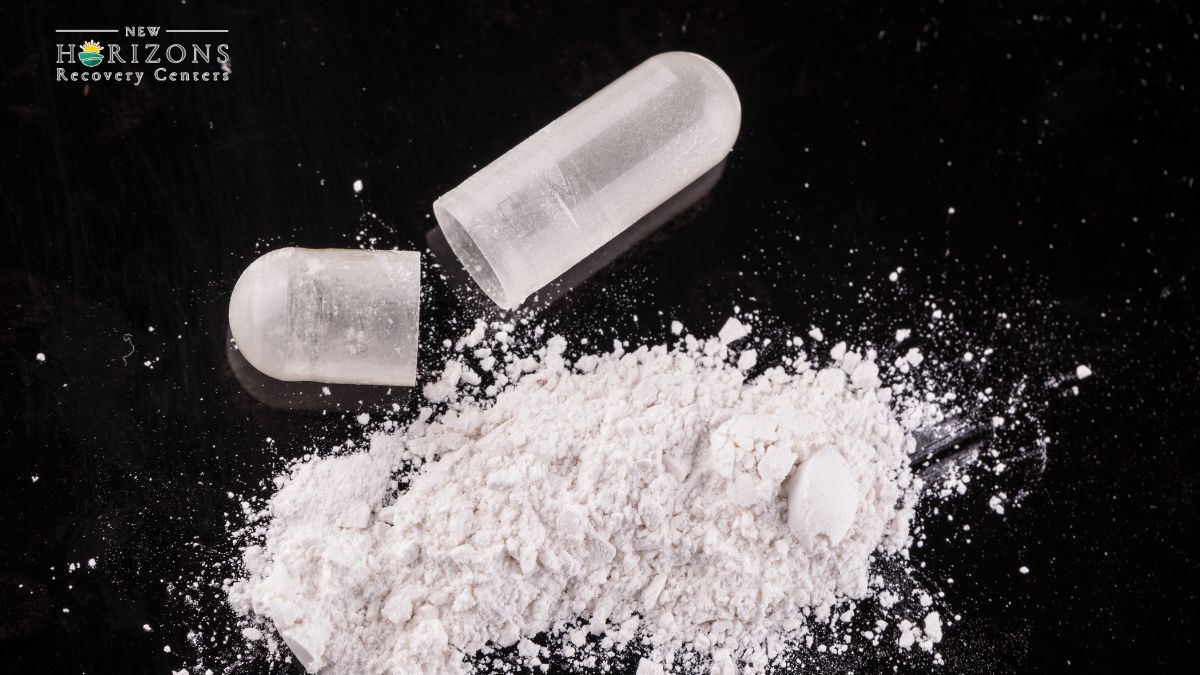Childhood Trauma and Addiction Development

The impact of childhood trauma on addiction development is a complex and serious issue that has been extensively studied. Understanding the relationship between childhood trauma and addiction is crucial for developing effective intervention and treatment strategies.
Impact of Childhood Trauma on Substance Use
Research studies have highlighted the significant impact of childhood trauma on substance use patterns. In a study involving 587 urban primary care patients in Atlanta, Georgia, high rates of lifetime dependence on various substances were observed. This included 39% alcohol, 34.1% cocaine, 6.2% heroin/opiates, and 44.8% marijuana. The severity of substance use, particularly cocaine, showed a strong correlation with levels of childhood physical, sexual, and emotional abuse, as well as current PTSD symptoms.
Childhood trauma exposure has been associated with a notable increase in substance use, such as alcohol, cocaine, and marijuana. Different types of childhood abuse experienced were linked to specific substance use patterns. For instance, physical abuse was connected to the use of all substances, sexual abuse was associated with cocaine and marijuana use, and emotional abuse was linked to cocaine use.
Relationship Between Childhood Abuse and Addiction
The relationship between childhood abuse and addiction is profound and multifaceted. Studies have shown that childhood trauma contributes to increased alcohol, cocaine, and marijuana use independently of adult trauma exposure. However, the impact of childhood trauma load on cocaine use was found to be intertwined with adult trauma, particularly in individuals with a history of childhood trauma and past cocaine dependence. This group exhibited significantly higher levels of PTSD symptoms compared to non-dependent individuals [1].
Individuals who have experienced significant childhood trauma may engage in self-harming behaviors, such as cutting or burning, as a coping mechanism for overwhelming emotional distress following trauma. These behaviors are often associated with past childhood sexual abuse and other traumatic experiences. Proper assessment and management of self-harm are essential to provide appropriate support and care for individuals dealing with trauma-related addiction issues.
Understanding the complex interplay between childhood trauma and substance use disorders is essential for developing targeted intervention strategies. Early traumatic experiences can increase the risk of substance use disorders as individuals may attempt to self-medicate or alleviate mood symptoms associated with a dysregulated stress response. Recognizing the timing and ages of trauma and substance use onset is vital in comprehending the intricate relationship between trauma and the development of addiction.
By examining the profound impact of childhood trauma on substance use behaviors, we can implement more effective prevention and treatment approaches for individuals struggling with addiction as a result of traumatic experiences.
PTSD and Substance Abuse

Examining the relationship between PTSD and substance abuse sheds light on the complex interplay between trauma and addiction development. Understanding the comorbidity of PTSD and substance use as well as the influence of trauma on substance dependency is critical in addiction recovery.
Comorbidity of PTSD and Substance Use
Studies have shown a high comorbidity between PTSD and substance abuse disorders, with up to 59% of young individuals with PTSD developing substance abuse problems. It is noteworthy that women who use drugs exhibit significantly higher mean scores for total PTSD symptom severity compared to non-users [1].
Research indicates that approximately 36% to 50% of individuals meeting criteria for substance use disorders also meet criteria for lifetime PTSD. This co-occurrence is associated with negative treatment outcomes and an elevated risk for chronic diseases. Recognizing the comorbidity of PTSD and substance use is paramount in providing comprehensive care for individuals struggling with addiction and trauma [3].
Influence of Trauma on Substance Dependency
Trauma exposure, particularly in childhood, plays a pivotal role in shaping an individual's vulnerability to substance abuse. Early traumatic experiences may increase the risk of substance use disorders as individuals may turn to substances to self-medicate or alleviate mood symptoms associated with a dysregulated stress response.
Conversely, substance use or abuse during adolescence can worsen biological stress response dysregulation, exacerbating the risk of PTSD and comorbid depressive symptoms. The timing and ages of onset of trauma and substance use are crucial in understanding the intricate relationship between trauma and addiction development.
Moreover, childhood trauma load significantly correlates with the number and severity of depressive and PTSD symptoms, suggesting that a PTSD diagnosis is likely once an individual surpasses a certain stress load threshold. Stress load in childhood is closely linked to the severity of depressive and PTSD symptoms in patients with these disorders, underscoring the pivotal role of early-life adverse experiences in predicting both substance abuse and PTSD outcomes in later life.
In summary, addressing the comorbidity of PTSD and substance use, as well as recognizing the profound impact of trauma on substance dependency, are essential steps in providing effective treatment and support for individuals navigating the complex intersection of addiction and trauma.
Trauma Types and Addiction Risks

Understanding the different types of trauma and their impact on addiction risks is essential in addiction recovery. Trauma can significantly influence the development and progression of addictive behaviors, making it crucial to examine specific types of trauma and their relationship with addiction. In this section, we will explore the risks associated with interpersonal trauma and indirect trauma exposure in relation to addiction.
Interpersonal Trauma and Psychological Distress
Interpersonal trauma, such as physical or sexual abuse, is known to be more distressing and linked to higher rates of psychological disorders compared to non-interpersonal trauma, like natural disasters. Individuals who have experienced interpersonal trauma may struggle with profound emotional pain, leading to psychological distress and emotional dysregulation.
The impact of interpersonal trauma on addiction risks is significant. Many survivors of interpersonal trauma may turn to substances as a way to cope with the overwhelming emotional and physical distress they experience. These individuals may use substances as a form of self-medication to numb emotional pain or alleviate symptoms of anxiety, depression, or post-traumatic stress disorder (PTSD).
Indirect Trauma Exposure and Behavioral Addictions
Indirect trauma exposure, where individuals witness traumatic events happening to others, can also have profound effects on mental health and potential negative outcomes like addiction, though studies on this topic are limited. Witnessing traumatic events can lead to feelings of helplessness, fear, and emotional upheaval, which may trigger maladaptive coping mechanisms, including engaging in addictive behaviors.
Behavioral addictions, such as compulsive gambling, shopping, or eating, can also stem from indirect trauma exposure. Individuals may use these addictive behaviors as a way to distract themselves from distressing emotions or to regain a sense of control in their lives. The cycle of trauma, distress, and maladaptive coping behaviors can perpetuate a pattern of addiction that is difficult to break without addressing the underlying trauma.
It is crucial for individuals who have experienced trauma to seek appropriate support and therapy to address the root causes of their distress. Trauma-informed addiction treatment that integrates therapies like Cognitive Behavioral Therapy (CBT) and Eye Movement Desensitization and Reprocessing (EMDR) can help individuals heal from trauma and develop healthier coping strategies to reduce the risk of addiction. Healing from trauma is a vital component of addiction recovery to promote long-lasting sobriety and emotional well-being.
Childhood Trauma Load and Substance Use

Exploring the connection between childhood trauma and substance use reveals profound insights into the impact of traumatic experiences on addiction development.
Trauma Load and Severity of Substance Abuse
Research has shown that the extent of childhood trauma experienced can have a significant influence on the severity of substance abuse in adulthood. A study of 587 urban primary care patients in Atlanta, Georgia, highlighted high rates of lifetime dependence on various substances. The study revealed that substance use, particularly cocaine, significantly correlated with levels of childhood physical, sexual, and emotional abuse, as well as current PTSD symptoms.
Specific trauma types are associated with varying levels of addiction risk. For example, individuals exposed to sexual assault may have a higher risk of developing alcohol use disorder compared to those exposed to combat-related trauma. Understanding the relationship between trauma load and substance abuse severity is crucial in developing effective interventions for individuals dealing with addiction issues.
Childhood Trauma Predicting Substance Dependence
Childhood trauma has been identified as a significant predictor of substance dependence later in life. Studies have demonstrated a strong association between childhood trauma and substance use disorders (SUDs) co-occurring with PTSD outcomes. The number of types of childhood trauma experienced has been shown to have an additive effect on predicting current PTSD symptoms and a history of cocaine dependence, independent of adult trauma exposure.
Individuals with a history of trauma may turn to substances as a coping mechanism to regulate their emotional state and manage the effects of past traumatic experiences. Drugs or addictive behaviors may serve as a temporary escape from intrusive thoughts and heightened stress levels associated with childhood trauma. This coping mechanism, although temporary, can contribute to the development of addictive behaviors as individuals seek relief from the psychological and biological impacts of trauma.
Understanding the link between childhood trauma load and substance use is essential in providing comprehensive care for individuals struggling with addiction. By addressing the roots of trauma and its impact on addiction development, healthcare professionals can tailor interventions and support systems to aid in the recovery process.
PTSD Symptoms and Addiction

Understanding the correlation between Post-Traumatic Stress Disorder (PTSD) symptoms and addiction is crucial in addressing the complex relationship between trauma and substance dependency.
Influence of PTSD on Addiction
Individuals experiencing PTSD may have an increased vulnerability to developing substance use disorders. Traumatic stress can lead to changes in brain function and behavior, making individuals more susceptible to the development of addiction, especially when exposed to trauma at a young age. Early traumatic experiences, such as violence, abuse, or neglect, are key risk factors associated with a higher likelihood of developing substance use disorders later in life.
Moreover, the interplay between PTSD and addiction is bidirectional. Individuals who have encountered early childhood trauma may attempt to self-medicate or alleviate mood symptoms linked to a dysregulated stress response through substance use. Conversely, the initiation of substance use during adolescence can further dysregulate the biological stress response, heightening the risk of PTSD and co-occurring depressive symptoms.
PTSD Symptom Clusters and Substance Dependency
The symptomatology of PTSD can significantly impact the development and severity of substance dependence. Research indicates that lifetime cocaine dependence is notably associated with higher levels of PTSD symptoms across all clusters – Intrusive, Avoidance/Numbing, and Hyperarousal – in comparison to individuals without cocaine dependency. Similarly, lifetime marijuana dependence correlates with specific PTSD symptoms, particularly in the Avoidance/Numbing and Hyperarousal clusters.
The co-occurrence of PTSD and substance use disorders (SUDs) is prevalent, with a substantial proportion of individuals meeting criteria for both conditions. Approximately 36% to 50% of individuals diagnosed with SUDs also meet criteria for lifetime PTSD, leading to negative treatment outcomes and an increased risk for chronic diseases. The timing and sequence of trauma exposure and substance use initiation play crucial roles in shaping the intricate relationship between trauma, PTSD symptoms, and addiction development.
To effectively address addiction in individuals with PTSD, it is essential to consider the intricate interplay between trauma exposure, PTSD symptom clusters, and substance dependency. Tailored treatment approaches focusing on trauma-informed care can help individuals navigate the complexities of trauma-related addiction and work towards holistic recovery.
Long-Term Effects of Trauma on Addiction

Understanding the impact of trauma on addiction development is crucial for effective addiction recovery. Trauma, particularly in childhood, can have lasting effects on individuals, influencing their stress responses and coping mechanisms. This section explores the long-term effects of trauma on addiction, focusing on the dysregulation of the stress system and trauma-informed addiction treatment.
Dysregulation of Stress System
Childhood trauma can lead to the dysregulation of the stress system, specifically the hypothalamic-pituitary-adrenal (HPA) axis. This dysregulation results in elevated stress hormones and continuous arousal, leading to symptoms such as anxiety, hypervigilance, and alertness. The chronic activation of stress responses can have detrimental effects on various aspects of an individual's well-being, including the immune system, emotion regulation skills, cognitive development, and executive functioning.
Trauma survivors may turn to substance abuse as a means of self-medication to regulate their emotions and alleviate the distress caused by trauma. Drugs or addictive behaviors can temporarily numb emotional pain and provide a sense of control. However, this coping mechanism can lead to further emotional dysregulation and dependency on substances for emotional relief.
Trauma-Informed Addiction Treatment
Recognizing the complex interplay between trauma and addiction, it is essential for addiction treatment to be trauma-informed. Trauma-informed care acknowledges the impact of trauma on individuals and focuses on creating a safe and supportive environment for healing. This approach involves understanding how trauma affects behavior, fostering trust and empowerment, and promoting holistic recovery that addresses both addiction and trauma-related issues.
By incorporating trauma-informed practices into addiction treatment, individuals with a history of trauma can receive the specialized care they need to address underlying trauma triggers, develop healthy coping mechanisms, and work towards long-term recovery. Trauma-informed addiction treatment aims to empower individuals to heal from past trauma, reduce the risk of relapse, and build a foundation for a healthier and more fulfilling life.
To explore more strategies for addressing trauma in addiction recovery, learn about mindfulness practices, sharing personal stories, and the role of nutrition in supporting addiction recovery. Effective addiction recovery involves a comprehensive approach that considers the multifaceted impact of trauma on individuals seeking to overcome addiction.
References
[2]:
[3]:
[4]:
[5]:
[6]:





-ink.jpeg)
-ink.jpeg)
